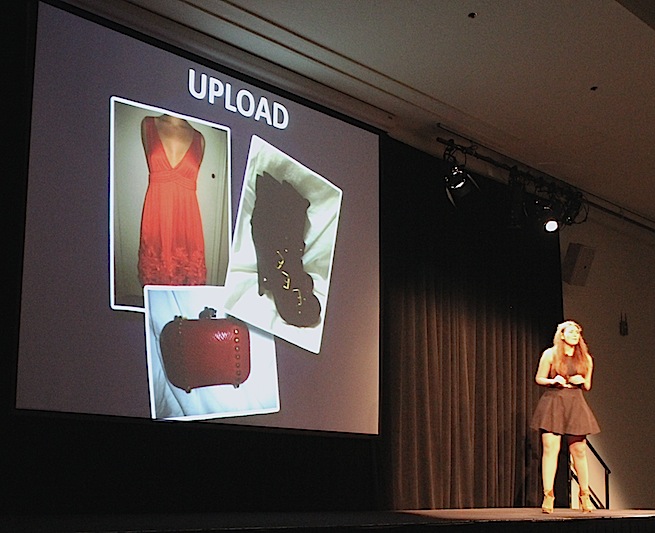99Dresses co-founder Nikki Durkin describes her company as an enabler to one of the world’s most powerful drugs: shopping.
[aditude-amp id="flyingcarpet" targeting='{"env":"staging","page_type":"article","post_id":408966,"post_type":"story","post_chan":"none","tags":null,"ai":false,"category":"none","all_categories":"business,social,","session":"C"}']“I have created crack for women,” said Durkin at today’s Y Combinator Demo Day.
The company allows women to upload items of clothing to the website, rate the quality, and then assign prices. But prices aren’t in dollars, they’re in a 99Dresses currency called “buttons.” Buttons can be purchased for a dollar each, and can only be spent on the website. This creates a closed-loop e-commerce environment that the founders hope will feel like a social network.
AI Weekly
The must-read newsletter for AI and Big Data industry written by Khari Johnson, Kyle Wiggers, and Seth Colaner.
Included with VentureBeat Insider and VentureBeat VIP memberships.
Thus far, 4,500 dresses have been uploaded to the website.
But how do you constantly monitor the quality of clothing going through the system? Co-founder Peter Delahunty explained to VentureBeat that 99Dresses is really relying on its community. The company encourages users to sign up through Facebook to create a sense of accountability. If a damaged item of clothing does change hands, however, the company will work with that customer to return her money, as well as note the issue in the seller’s history.
Poshmark, a mobile application, provides a similar service to 99Dresses. It also attempts to create a community around selling fashion, but does not have its own currency. Instead, it does this by only allowing people to buy items from “posh parties,” or e-commerce trunk shows that are held around a specific genre of fashion.
VentureBeat's mission is to be a digital town square for technical decision-makers to gain knowledge about transformative enterprise technology and transact. Learn More

